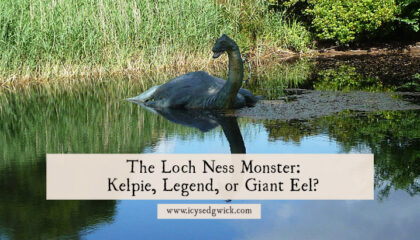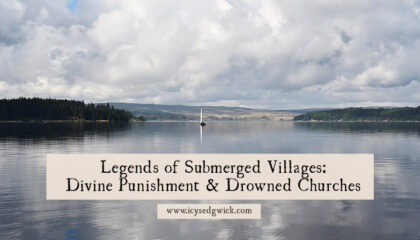There can be a tendency to view folklore as antiquated customs, old legends, or outdated practices. Yet folklore is not disconnected from contemporary life, and is an ever-evolving part of our lived experience. Folk music and folk art are two obvious branches, yet dialect and language is another. Louise Pound refers to dialect as “linguistic […]
folklore
The Loch Ness Monster: Kelpie, Legend, or Giant Eel?
The Loch Ness Monster is perhaps one of the world’s most enduring mysteries. Does a giant reptile really lurk in a Scottish loch? Has it somehow survived for millennia on its own? Or is it something darker and more dangerous? It is, after all, a monster. Its legend dates to the 7th century, although recorded […]
Legends of RMS Titanic: Mummy Curses and Ghost Captains
Few maritime disasters have captured the public imagination like the RMS Titanic. Perhaps it’s because of the relatively recent nature of its sinking, compared to the loss of the Mary Rose warship. The countless films, documentaries, and exhibitions probably help in prolonging fascination. New theories and reconstructions attempt to pin blame on one factor or […]
Blue Men of the Minch: Scotland’s Storm Kelpies
When we look at types of folkloric creature, we often encounter the same types in different places, such as mermaids or fairies. But occasionally, you encounter a creature so localised that it only appears in a single place. The Blue Men of the Minch are one such example. Feared by sailors, the Blue Men of […]
Legends of Submerged Villages: Divine Punishment and Drowned Churches
If we think of submerged cities, lost beneath the waves, we’re probably most likely to think of Atlantis, that thought-experiment that took on a life of its own. Closer to home, there’s the lost Welsh kingdom of Cantre’r Gwaelod, believed to lie beneath the water between Bae Ceredigion and Ynys Enlli. Yet there are countless […]
The Mouse in Folklore: Medicine, Omens, and Collecting Teeth
The humble mouse appears in a surprising amount of folklore. Both a harbinger of death if spotted in the house, and a medical remedy for a range of ailments, it seems the mouse both harms and heals. This reputation even stretches back to ancient Egypt, demonstrating just how ambivalent humans have felt about the tiny […]











